Planetary Science
-
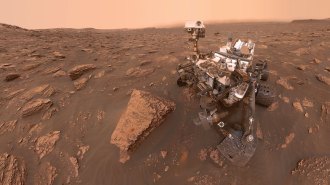 Astronomy
Astronomy‘Under Alien Skies’ imagines what the sky looks like on other planets
Astronomer Philip Plait’s new book takes readers on a thrilling ride to Mars, Pluto and even a black hole.
-
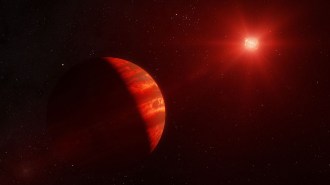 Astronomy
AstronomyJupiter-sized planets are very rare around the least massive stars
A six-year search of 200 nearby low-mass red dwarf stars found no Jupiter-like planets, boosting the standard theory for how such planets form.
By Ken Croswell -
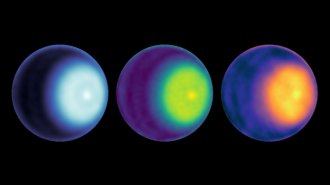 Space
SpaceA cyclone has been spotted swirling over Uranus’ north pole for the first time
Voyager 2 hinted at a cyclone at Uranus’ south pole. Now Earth-based observations give the first direct evidence of a storm at the ice giant’s north pole.
-
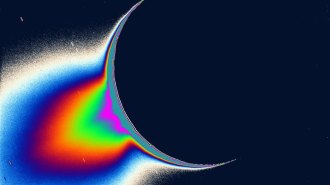 Planetary Science
Planetary ScienceJWST captured Enceladus’ plume spraying water nearly 10,000 kilometers into space
NASA’s James Webb Space Telescope reveals the rate at which Saturn’s moon Enceladus spews water and where that water ends up.
-
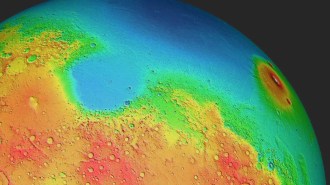 Planetary Science
Planetary ScienceA quake on Mars showed its crust is thicker than Earth’s
Seismic data from NASA’s Insight lander reveal the crust is roughly 50 kilometers thick, with the northern crust being thinner than the south’s.
-
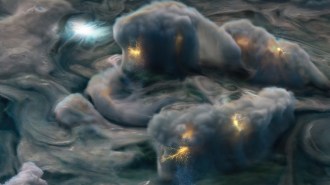 Planetary Science
Planetary ScienceJupiter’s lightning bolts contort the same way as Earth’s
Jovian lightning extends in jagged steps as it does on Earth, data from NASA’s Juno spacecraft suggest. The finding might aid the search for life.
By Nikk Ogasa -
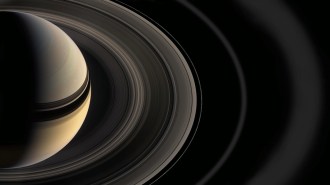 Planetary Science
Planetary ScienceSaturn’s rings may be no more than 400 million years old
An analysis of data from NASA’s defunct Cassini probe suggests Saturn's rings materialized more than 100 million years after trilobites appeared on Earth.
By Nikk Ogasa -
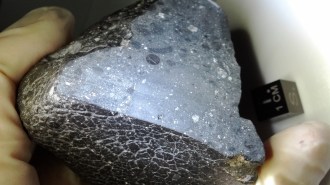 Planetary Science
Planetary ScienceWhy you shouldn’t use magnets when looking for meteorites
A popular tool for identifying meteorites can overwrite records of magnetic fields stored within the space rocks.
-
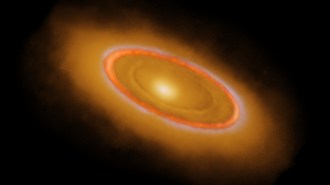 Astronomy
AstronomyThe James Webb telescope revealed surprise asteroids in the Fomalhaut star system
New images of Fomalhaut confirm that an alleged planet is probably just dust while also revealing a new asteroid belt and a “Great Dust Cloud.”
-
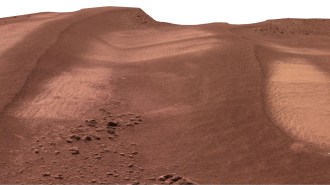 Space
SpaceSalty water may have flowed near Mars’ equator as recently as 400,000 years ago
Crusts and cracks on Martian sand dunes are a sign salty water flowed near the equator thousands, not billions, of years ago — and may still exist.
-
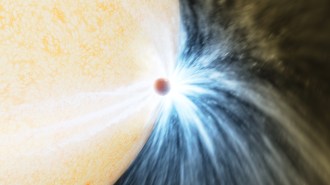 Astronomy
AstronomyFor the first time, astrophysicists have caught a star eating a planet
A burst of light and a cloud of dust are signs that a star 12,000 light-years away swallowed a planet up to 10 times the mass of Jupiter.
-
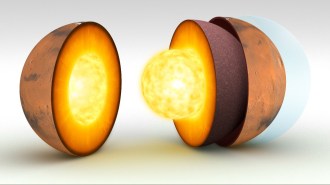 Planetary Science
Planetary ScienceSeismic waves crossing Mars’ core reveal details of the Red Planet’s heart
NASA’s InSight lander observed a quake and an impact on the farside of Mars, allowing researchers to measure physical properties of the planet’s core.
By Nikk Ogasa